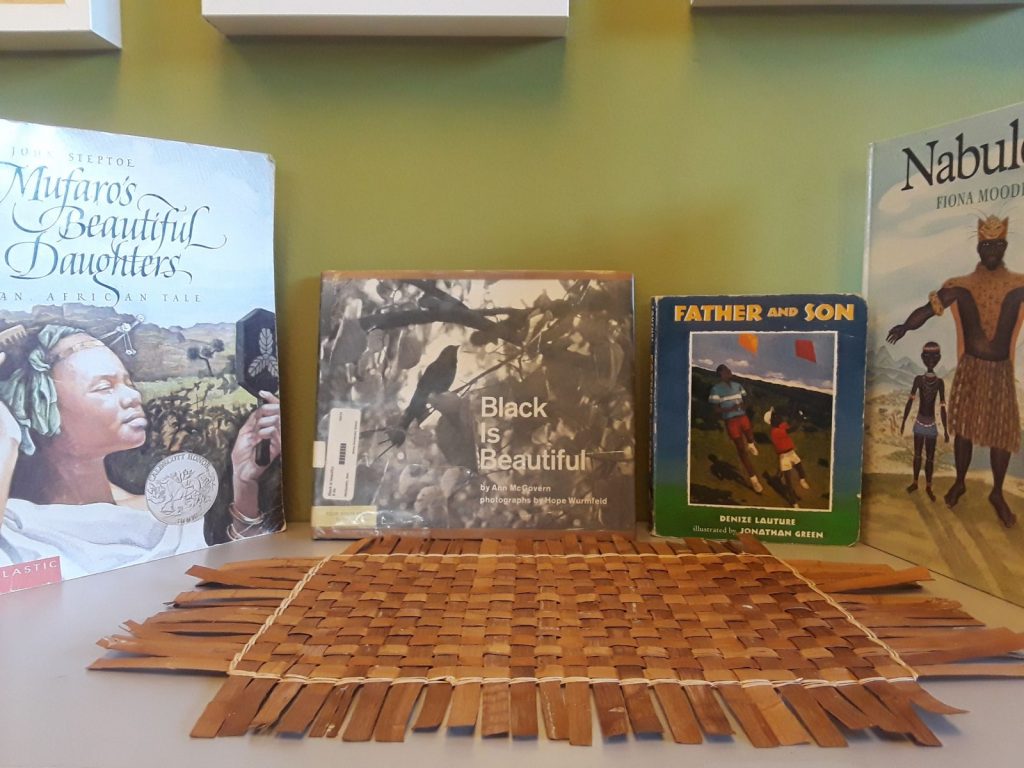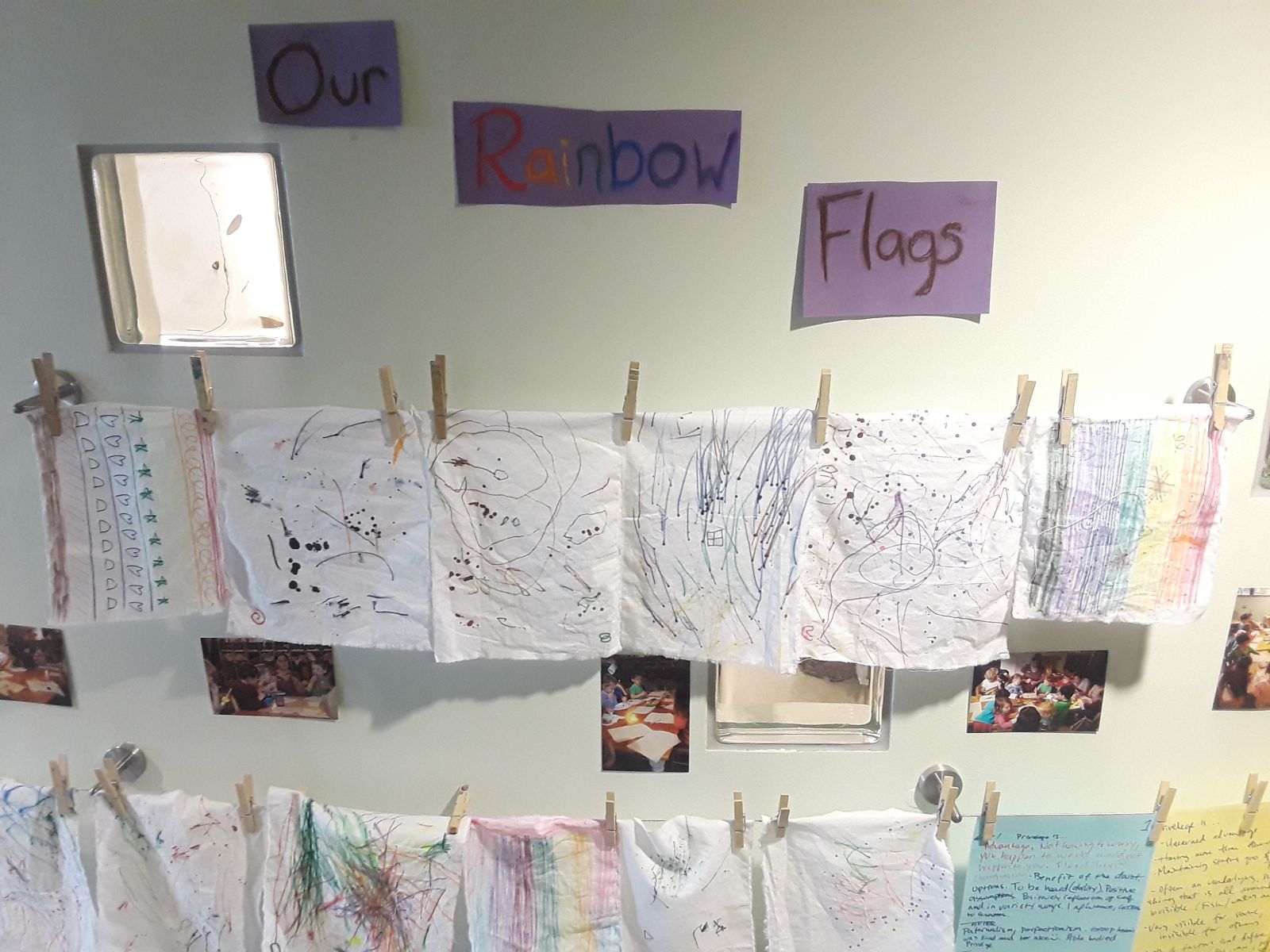
Building an Anti-Bias Library: Part Four – Family Structures and Holidays and History
[et_pb_section bb_built=”1″ admin_label=”section” next_background_color=”#000000″][et_pb_row admin_label=”row” make_fullwidth=”off” use_custom_width=”off” width_unit=”on” use_custom_gutter=”off” allow_player_pause=”off” parallax=”off” parallax_method=”on” make_equal=”off” parallax_1=”off” parallax_method_1=”off” parallax_2=”off” parallax_method_2=”off” parallax_3=”off” parallax_method_3=”off” background_position=”top_left” background_repeat=”repeat” background_size=”initial”][et_pb_column type=”4_4″][et_pb_text use_border_color=”off” border_color=”#ffffff” border_style=”solid” background_position=”top_left” background_repeat=”repeat” background_size=”initial” _builder_version=”3.8″]
This is the fourth and final installment of a four part series titled “Building an Anti-Bias Library.” Today, we will focus on Family Structures, Holidays and History. For part one, please click here. For part two, please click here. For part three, please click here.
On September 27th, 2017, we welcomed Debbie LeeKeenan, Dr. Caryn Park and Dr. Maggie Beneke to kick off of 2017-2018 Educator Discussion Series focusing on Anti-Bias Education.
Their workshop titled: Using Children’s Literature to Provoke Conversations on Challenging Topics focused on how to use the power of pictures, illustrations, films, and literature to learn about, and rejoice in who we are as a diverse community. This session also explored how to use children’s literature and read-alouds as a way to provoke and facilitate conversations on potentially challenging topics with young children.
As we head into the next school year, we revisit this session with part four of this four part series to help aid you in building a comprehensive list of Anti-Bias books. After-all, as literary gatekeepers of our classrooms and homes, it is our duty to cultivate a more inclusive library collection!
[/et_pb_text][et_pb_text use_border_color=”off” background_position=”top_left” background_repeat=”repeat” background_size=”initial” _builder_version=”3.8″]
 Hilltop’s Rainbow Classroom (2-to-3- year olds) celebrating Pride Month by creating Rainbow Flags while unpacking and engaging in conversation about the many different types of family structures
Hilltop’s Rainbow Classroom (2-to-3- year olds) celebrating Pride Month by creating Rainbow Flags while unpacking and engaging in conversation about the many different types of family structures
[/et_pb_text][et_pb_divider color=”#ffffff” show_divider=”off” divider_style=”solid” divider_position=”top” hide_on_mobile=”on” height=”11″ disabled_on=”on|on|off” _builder_version=”3.8″ /][et_pb_text use_border_color=”off” background_position=”top_left” background_repeat=”repeat” background_size=”initial” _builder_version=”3.8″]
Building an Anti-Bias Library – Family Structures, Holidays and History
When building an inclusive library and deciding on which resources should be a part of it, this workshop recommends that you ask yourself the following questions to ensure that each book you select is an appropriate book for your classroom as part of an anti-bias approach:
- Timing: When is it appropriate to introduce this book? (developmentally appropriate, right time in the year)
- Context: What needs to be in place for this book to be effective?
- Relationships: Does this book connect authentically to you, your children, families or networks?
- Knowledge/accuracy: What do you know about this issue? What is the source and accuracy of your information? What don’t you know? How can you learn more? (preparation, comfort level)
- Children’s Knowledge: What do the children know about this topic/issue? What are their questions?
- Pedagogy: How will you share this book and respond to questions/responses?
- Continuity: How will you continue the issues raised in this book in the future – to ensure depth and complexity?
The visual and verbal messages young children absorb from books and other media strongly influence their ideas about themselves and others. (For a list of resources on Children’s Identity Formation, click here). Therefore, carefully choosing children’s books is a vital educational task. Here are the eighth, ninth, and tenth idea (out of ten) to consider when reviewing children’s books for misinformation and stereotypes.
8. Watch for loaded words
A word is “loaded” when it has offensive overtones. Always consider the context in which a word is used and to whom it applies (e.g., be wary of terminology that describes children or families as “ordinary” or “normal”).
- Know common expressions of loaded words. Loaded adjectives applied to people of color that carry racist overtones include savage, primitive, backward, inscrutable, and treacherous, among others
- Look for alternatives. For example, try to avoid the generic use of “man” for humankind or male terms for occupations by using firefighters instead of firemen, ancestors instead of forefathers, chairperson instead of chairman, and so on.
9. Look at the copyright date
Although a recent copyright date is no guarantee of a book’s relevance or sensitivity, copyright dates are useful information.
- More children’s books began to reflect the reality of multicultural society and nonsexist and nonableist perspectives in the 1970s. Since then, the range of accurate, respectful, and caring books reflecting diversity is increasing.
- When considering new books for your collection, begin with more recently published materials and then continue with older copyright dates.
10. Always keep in mind the power of books
The words and images in books have the ability to nurture or undermine children’s sense of self, and they deeply impact children’s attitudes towards others. Keep this in mind as you review books for misinformation and stereotypes.
To help you get started, here are a list of Children’s Books supporting Anti-Bias Education recommended by Debbie LeeKeenan:
Family Structures:
Fred Stays With Me! by Coffelt,N (2007)
The Great Big Book of Families,by Hoffman, M (2011)
Heather Has Two Mommies by Lesléa N(2015)
Two Homes by Masuret, C (2001)
The Family Book by Parr, T(2010)
And Tango Makes Three by Richardson, J (2005)
Holidays and History:
How many days to America? A Thanksgiving Story by Bunting, E (1988)
Sam and the Lucky Money by Chinn, K (1995)
Rosa by Giovanni, N.& Collier, B (2005)
Sweet Clara and the Freedom Quilt by Hopkinson, D. (1995)
Happy New Year: Celebrations in My World by Peppas, L (2010)
Shanté Keys and the New Year’s Peas by Piernas-Davenport, G (2007)
Back of the Bus by Reynolds, A. & Cooper, F (2007)
The Stars Will Still Shine by Rylant, C (2005)
Separate is Never Equal: Sylvia Mendez and her Family’s Fight for Desegregation by Tonatiuh, D (2014)
The Animals of the Zodiac by Whitfield & Browne (1998)
Under the Ramadan Moon by Whitman, S. (2008)
Encounter by Yolen, J (1992)
The social and emotional development of young children is a core part of their school experience. Research has shown that prejudice is countered when schools and classrooms foster critical thinking, empathy development and positive self-esteem in young children. We hope that this series helps you to create inclusive, respectful classrooms where young children feel comfortable talking about difficult but important issues is an ongoing effort and working for social justice is a life-long endeavor. If you’re interested in exploring more on how Hilltop create positive, anti-bias environments where respect for diversity is taught, modeled and experienced firsthand, please feel free to email Mike at institute@hilltopcc.org for more information.
Bring your team to Hilltop or we can come to you! Hilltop Study Days and Inquiry Days (multi-day visits), are full day visits to Hilltop to see child-centered and reflective practice in action, while exploring proven models for supporting responsive curriculum in your own programs. These visits to Hilltop (or if you’re out of state / country, we can come to you) will allow educators and leadership staff to discuss practical strategies for planning curriculum that builds directly from the interests and needs of the children and families in your schools. Join us to discover organizational systems and administrative practices that can bring your own program values to life! For more information please visit either Hilltop Study Days or Inquiry Visits, or email Mike at institute@hilltopcc.org.
[/et_pb_text][et_pb_comments show_avatar=”on” show_reply=”on” show_count=”on” background_layout=”light” use_border_color=”off” border_color=”#ffffff” border_style=”solid” custom_button=”off” button_icon_placement=”right” _builder_version=”3.0.92″ header_font_size_tablet=”51″ header_line_height_tablet=”2″ /][et_pb_button button_url=”https://hilltopcc.com/privilege” url_new_window=”on” button_text=”Sign Up For Unpacking White Privilege in Schools and Classrooms” button_alignment=”center” background_layout=”light” custom_button=”on” button_icon_placement=”right” button_text_size=”14″ button_text_size_last_edited=”off|” button_border_width=”1″ button_border_radius=”28″ _builder_version=”3.0.92″ /][et_pb_social_media_follow link_shape=”rounded_rectangle” background_layout=”light” url_new_window=”on” follow_button=”on” border_radii=”on|3px|3px|3px|3px”][et_pb_social_media_follow_network social_network=”facebook” url=”https://www.facebook.com/Hilltop-Childrens-Center-Seattle-73100851072/” skype_action=”call” bg_color=”#3b5998″] Facebook [/et_pb_social_media_follow_network][/et_pb_social_media_follow][/et_pb_column][/et_pb_row][et_pb_row][et_pb_column type=”4_4″][/et_pb_column][/et_pb_row][/et_pb_section][et_pb_section bb_built=”1″ prev_background_color=”#000000″][et_pb_row][/et_pb_row][/et_pb_section]
1 thought on “Building an Anti-Bias Library: Part Four – Family Structures and Holidays and History”
Comments are closed.
Great resource, thanks!!